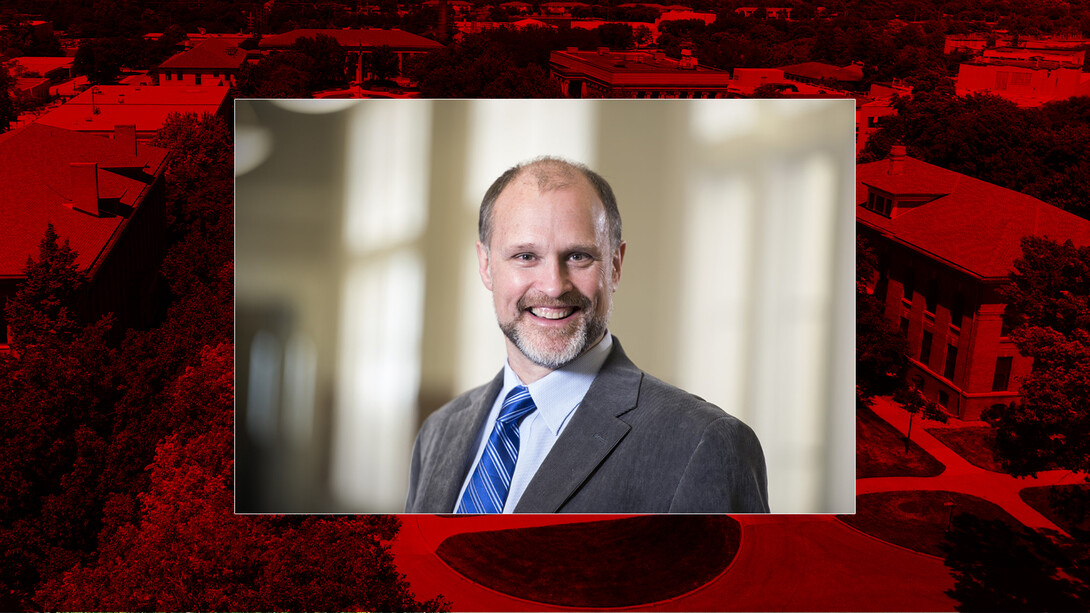
About Daniel
I am a research professor in the School of Natural Resources and director of the Water Sciences Laboratory, a part of the Nebraska Water Center and Daugherty Water for Food Global Institute. I am originally from Villisca, Iowa and grew up on a farm in Montgomery County. I received a bachelor’s degree in geology from Southwest Missouri State University, a master’s degree in geochemistry from Louisiana State University and doctorate degree from the University of Nebraska. My doctoral research was supervised by Roy Spalding and involved the geochemistry and use of natural uranium isotopes in the Platte River drainage basin. I applied for the position of laboratory manager at the newly created Water Sciences Laboratory in 1990 while working on my doctorate degree and have been a fulltime UNL employee for over 30 years. I became a research assistant professor in what was then the School of Natural Resource Sciences in 1999.
What is your position at the University of Nebraska-Lincoln?
I accepted my current position, director of laboratory services, in 2004. My position is mainly split between research and scholarly service, with a small portion devoted to teaching. Under research, I spend a lot of time working with researchers to develop new testing methods for contaminants and stable isotopes. Many of these methods use mass spectrometry and can be quite time consuming to create and refine. Mass spectrometers are among the most sensitive and complex instruments available for analytical testing, and often support other less expensive or simplified testing methods. It is my job to make sure this equipment is used correctly, with the right procedures and samples. I work with scientists to propose new research projects involving the Water Sciences Laboratory, manage lab staff and budgets, co-author research papers and supervise students. Finally, I teach a course called water quality strategy every spring. This course is offered to undergraduate and graduate students from agronomy, natural resources, engineering, planning, sociology and political science. The course provides an opportunity for students in these disciplines to apply what they have learned in the majors to evaluate and propose realistic solutions to today’s most pressing water quality issues.
What drew you to the University of Nebraska-Lincoln?
While I was finishing my master’s thesis research about pore water chemistry in an estuary on the Louisiana Gulf Coast, I happened upon a copy of the journal “Groundwater” published by the National Groundwater Association. I read through the articles and decided immediately that I wanted to study groundwater for my doctorate degree. I applied at several universities with strong hydrogeology programs including UNL. I was offered a teaching assistantship in the UNL Geology Department and, after visiting several of the faculty here, decided it would be a great place to study groundwater while furthering my knowledge and skills in chemistry and geology. About half of my coursework was in the UNL Department of Chemistry where I really learned to appreciate the power of mass spectrometry.
What aspect of working in an educational setting do you enjoy the most?
I really enjoy teaching, both in a classroom setting and one-on-one with the students I advise and supervise at the Water Sciences Laboratory. Teaching requires me to continuously revaluate my ideas, perceptions and knowledge, while explaining them to others in everyday language. I’ve learned to ask questions while teaching, listen to answers and then rephrase to ensure that we are all on the same page. I love to learn new things and pass these on to my students and colleagues. What’s become even more rewarding is working with students from other countries. Through the years I’ve developed collaborations with faculty and students in Kazakhstan, India, Thailand and Nigeria. I get to travel to other universities and work with these students and faculty, passing on the knowledge and experiences that I have. We often have students come to UNL on an exchange visit to learn about our methods and instrumentation available at the Water Sciences Laboratory.
What do you consider your greatest achievement?
I think my greatest achievement is sticking with this rewarding, though highly demanding, academic career while having a family. I have a wonderful wife and we have raised three amazing children. Carol and I have been married for almost 38 years. Our children - Philip, Emery and Clarissa - are all grown and pursuing their own careers now. It is really incredible to see them turn into adults. I was pretty active in my kids’ preschool and scouting and those activities turned into some really fun memories.
What is something that most people don't know about you?
I love music. I bought a guitar and took lessons when I was a kid in Villisca and went on to play regularly in college, including a short stint in a band. I also joined chorus, swing choir and took voice lessons in high school and college. Music is a great way to express thoughts, emotions and tell stories. In Lincoln, I occasionally play and sing for our church and am always up for jamming with my college friends or my much more musically talented son, Emery.
What is your life like outside of work?
Outside of music, my other hobby is scuba diving. I took the certification course in 1979 and try to go diving at least once each year. When I was younger, I could get in a couple of trips each year. My kids all took the Scuba Schools International Advanced Open Water Certification Course through our scout’s venture crew. Now I get to spend time with my kids (when they have time) doing a hobby I really enjoy. When I’m not involved in these hobbies, Carol and I take care of our small acreage east of Lincoln where she runs a dog grooming and boarding business. We have four miniature donkeys and chickens and a small vegetable garden. My oldest son, Philip, and I also are restoring his 1965 Mustang. We stay pretty busy!







